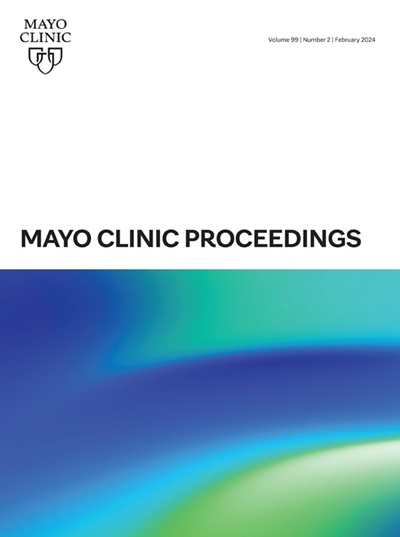Residency and Fellowship: Fostering Physician Well-being Over the Career Life Cycle
IF 6.7
2区 医学
Q1 MEDICINE, GENERAL & INTERNAL
引用次数: 0
Abstract
Being a physician offers tremendous opportunity to make a difference in the lives of patients through meaningful work. A career in medicine is also demanding and challenging. Some challenges to well-being affect physicians at all stages of their career while others impact physicians differently at different career stages. This article is the first in a series of 5 articles considering the different stages of physicians’ career life cycle. The present article focuses on exploring the residency and fellowship, or graduate medical education (GME) phase, including a summary of literature on evidence-based interventions. Residents and fellows face a steep learning curve while having significant responsibility for direct patient care, and have unique needs in the system due to their status as both trainee and employee. They are also particularly vulnerable to mistreatment, and are in a unique time of transformative professional growth. With intentionality, organizations can create a training environment that fosters growth, professional development, and well-being for residents and fellows. Leveraging accreditation requirements, funding strategic roles to support resident and fellow well-being, enhancing faculty development programs, and providing benefits and resources can address system challenges. Leaders and faculty can build a supportive culture by modeling vulnerability, community building, developing mentoring relationships, and encouraging and protecting time for residents and fellows to engage in self-care and physical and mental health appointments. Helping residents and fellows develop growth mindsets and self-care skills will also prepare them for a meaningful, productive, and sustainable career with benefits for other phases of the physician career life cycle.
住院医师和奖学金:在职业生命周期中培养医生的幸福感。
作为一名医生,通过有意义的工作提供了巨大的机会来改变病人的生活。医学职业也要求很高,充满挑战。一些对幸福感的挑战会影响医生职业生涯的各个阶段,而另一些则会在不同的职业阶段对医生产生不同的影响。本文是考虑医生职业生命周期不同阶段的5篇系列文章中的第一篇。本文的重点是探索住院医师和奖学金,或研究生医学教育(GME)阶段,包括对循证干预的文献总结。住院医生和研究员在承担直接护理病人的重大责任的同时,面临着陡峭的学习曲线,并且由于他们作为实习生和雇员的身份,在系统中有独特的需求。他们也特别容易受到虐待,并且正处于一个独特的转型专业成长时期。有了意向,组织可以为住院医师和研究员创造一个促进成长、专业发展和幸福的培训环境。利用认证要求,资助战略角色来支持居民和同事的福祉,加强教师发展计划,提供福利和资源可以解决系统挑战。领导者和教师可以通过模拟脆弱性、社区建设、发展师徒关系、鼓励和保护住院医生和研究员参与自我护理和身心健康预约的时间来建立一种支持性文化。帮助住院医生和同事发展成长心态和自我护理技能,也将为他们有意义、富有成效和可持续的职业生涯做好准备,并为医生职业生涯的其他阶段带来好处。
本文章由计算机程序翻译,如有差异,请以英文原文为准。
求助全文
约1分钟内获得全文
求助全文
来源期刊

Mayo Clinic proceedings
医学-医学:内科
CiteScore
16.80
自引率
1.10%
发文量
383
审稿时长
37 days
期刊介绍:
Mayo Clinic Proceedings is a premier peer-reviewed clinical journal in general medicine. Sponsored by Mayo Clinic, it is one of the most widely read and highly cited scientific publications for physicians. Since 1926, Mayo Clinic Proceedings has continuously published articles that focus on clinical medicine and support the professional and educational needs of its readers. The journal welcomes submissions from authors worldwide and includes Nobel-prize-winning research in its content. With an Impact Factor of 8.9, Mayo Clinic Proceedings is ranked #20 out of 167 journals in the Medicine, General and Internal category, placing it in the top 12% of these journals. It invites manuscripts on clinical and laboratory medicine, health care policy and economics, medical education and ethics, and related topics.
 求助内容:
求助内容: 应助结果提醒方式:
应助结果提醒方式:


